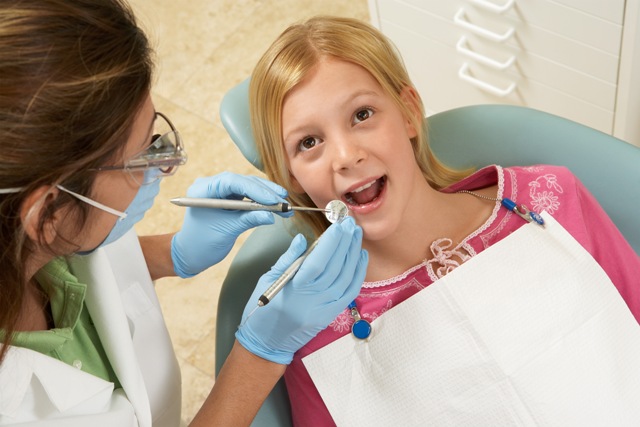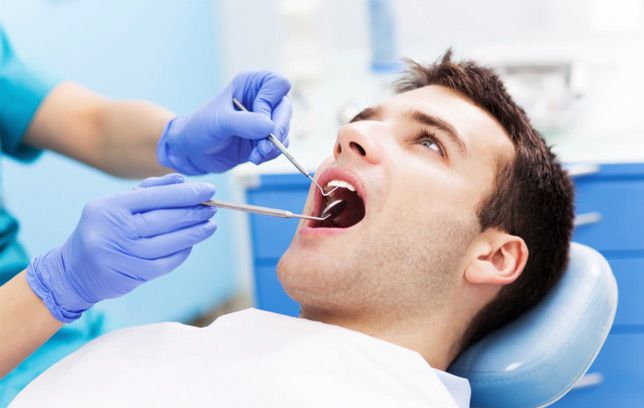
Eyes are called windows to the soul, but your mouth might just be the window to your health. The state of your teeth and gums can reflect a lot about your overall health, but the connection may even go deeper than that. Let’s see how!
How Are Oral Health and Overall Health Connected?
The connection between oral health and overall health is still not fully understood, but many studies suggest a link between the two. Your mouth is teeming with good and bad bacteria, so the health of your teeth and gums could certainly affect the rest of your body.
Oral bacteria can travel through the body by entering the bloodstream, respiratory system, and digestive system, causing infection or inflammation in different areas. Even if they aren’t directly causing a problem, your immune system may react to their presence with an inflammatory response.
This works the other way around as well. A chronic disease or infection in your body could affect your oral health or make symptoms of dental problems worse. Certain drugs and medication can also decrease saliva production and increase the risk of oral issues.
Here are some medical conditions that may be connected to dental health:
- Heart Disease – Poor oral health is linked to cardiovascular disease, clogged arteries, and stroke. If bacteria from your mouth enter the bloodstream and reach your heart, they can cause atherosclerosis or hardening of arteries. They can also cause endocarditis or infection and inflammation in the heart’s inner lining.
- Diabetes – Diabetics need to be very careful about oral health care. It may be more difficult to keep blood sugar levels under control if you have periodontal disease or gum inflammation. This can increase diabetic symptoms, but you could also be more prone to gum disease if you have diabetes.
- Pregnancy Complications – Expecting mothers need to be extra careful about the health of their teeth and gums since periodontal disease has been linked to low birth weight in babies as well as premature birth. Hormonal changes at this time can also cause pregnancy gingivitis in mothers.
- Respiratory Infection – If you have a tooth or gum infection, you are constantly breathing in oral bacteria that go straight to your lungs every time you inhale. As a result, gum disease and other oral problems may lead to the development of lung infections such as pneumonia over time.
- Osteoporosis – This is usually an age-related problem that leads to loss of bone mass, causing bones to lose strength and become brittle. The disease, as well as the medication used for its treatment, could also affect bones in the jaw, increasing the risk of periodontal bone and tooth loss.
Tips for Improving Oral Hygiene and Dental Health
You may already know that oral health care is important, but now you have even more reasons to practice good oral hygiene habits.
Follow these tips:
- Brush teeth with a fluoridated toothpaste for 2 minutes after every meal.
- Replace your toothbrush every 3-4 months, or when bristles start fraying.
- Floss between your teeth at least once a day to dislodge food particles.
- Use an antibacterial mouthwash or rinse to eliminate oral germs.
- Avoid sugary, sticky or hard foods, and snacking between meals.
- Eat a balanced and nutritious diet.
- Drink plenty of fresh, clean water.
- Avoid smoking or tobacco use.
- Get regular dental cleanings.
Most importantly, visit your dentist on a regular basis and get dental treatment on time. If you’re on any medication, have noticed changes in your health or suffer from chronic conditions like diabetes, make sure to give your dentist the details.
References
US Department of Health and Human Services (2000), Oral health in America: A report of the Surgeon General, Rockville, MD: US Department of Health and Human Services, National Institute of Dental and Craniofacial Research, National Institutes of Health
Healthy Mouths, Healthy Lives: Australia’s National Oral Health Plan 2004–13 (2004). Prepared by the National Advisory Committee on Oral Health.
Shiboski CH, et al. High accuracy of common HIV-related oral disease diagnoses by non-oral health specialists in the AIDS Clinical Trial Group. PLOS One. 2015
Jane Atkinson, D.D.S., Chief, Center for Clinical Research, Division of Extramural Research, National Institute of Dental and Craniofacial Research
Martande SS, et al. Periodontal health condition in patients with Alzheimer’s disease. American Journal of Alzheimer’s Disease & Other Dementias. 2014

